Study maths in Germany - 33 institutions
-
 In 2021 an average IB score made up 33,4
In 2021 an average IB score made up 33,4 GermanySalemCurrently watching: 8from 42840.00 € / yearApply with documents
GermanySalemCurrently watching: 8from 42840.00 € / yearApply with documents -
 School is in top 10 best bilingual boarding schools in Germany
School is in top 10 best bilingual boarding schools in Germany GermanyBerlinCurrently watching: 4from 37000.00 € / yearApply with documents
GermanyBerlinCurrently watching: 4from 37000.00 € / yearApply with documents -
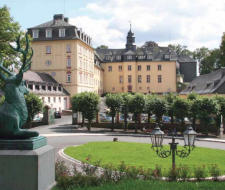 from 24000.00 € / yearApply with documents
from 24000.00 € / yearApply with documents -
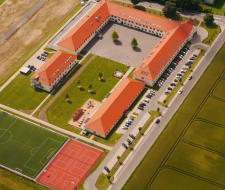 In 2023 IGCSE results - 90% of our exams were graded A*- C
In 2023 IGCSE results - 90% of our exams were graded A*- C GermanyCologneCurrently watching: 4Apply with documents
GermanyCologneCurrently watching: 4Apply with documents -
 In 2021 an average Abitur score made up 2.29
In 2021 an average Abitur score made up 2.29 GermanyMunichCurrently watching: 1from 33600.00 € / yearApply with documents
GermanyMunichCurrently watching: 1from 33600.00 € / yearApply with documents -
 from 2750.00 € / 2 weeksApply with documents
from 2750.00 € / 2 weeksApply with documents -
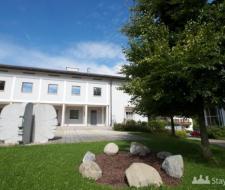 from 37500.00 € / yearApply with documents
from 37500.00 € / yearApply with documents -
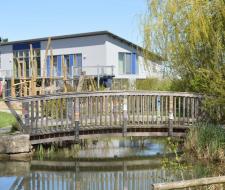 from 52330.00 € / yearApply with documents
from 52330.00 € / yearApply with documents -
 In 2022 an average IB score made up 33
In 2022 an average IB score made up 33 GermanyHannoverCurrently watching: 2from 30000.00 € / yearApply with documents
GermanyHannoverCurrently watching: 2from 30000.00 € / yearApply with documents -
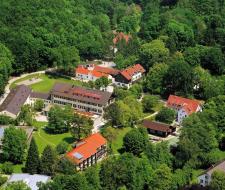 from 39660.00 € / yearApply with documents
from 39660.00 € / yearApply with documents
Alternative destinations
Education information
The education system in Germany is distinguished by the clarity of educational routes: in fact, the future path is predetermined at the age of 10 when graduating from primary school. However, the influence of modern trends, especially at the university level, has made the German educational model more flexible. In particular, it is more open to foreign students, whose number is growing annually in German universities. Secondary 10-year education in Germany is compulsory. Children are admitted to school at the age of 6.
In most lands, primary school education lasts 4 years, excepting Berlin and Brandenburg – here the initial education lasts 6 years. The first two years of studying are conducted without dividing by subject, all basic knowledge is taught within the framework of a single educational course. From the 3rd grade, separate subjects appear, as well as children begin to get grades.
Secondary education of the first stage takes place until the 10th grade, and after that only students who plan to enter the university continue their studies. In grades 11-12, intensive profile preparation for the future profession is conducted. Applicants who take the Abitur exams at the end of the year go to the 13th grade, since it is these indicators that are taken into account by university commissions.
Maths in private schools in Germany – specifics of studying
After completing the compulsory stage, children choose one of 5 types of educational institutions to continue their studies in Germany for the foreign students: gymnasium, general, basic, vocational school. The most popular among German children are gymnasiums, which allow them to continue their studies until the 13th grade (8-9 years spent in them provide in-depth study of humanitarian, technical or social subjects, and maths programme of study in Germany).
Private international institutions, in addition to the standard program, offer students additional subject electives (mathematics, chemistry, language), sports clubs, creative courses and practical classes.
The largest German educational institutions, in addition to preparing for the Abitur exams, provide for the possibility of two–year study in Germany for the foreign students on the program for admission to major world universities - International Baccalaureate, A-level, GCSE, allowing to enter English and American educational institutions without any problems.
Study GCSE maths in Germany – specifics of studying
GCSE (General Certificate of Secondary Education) is a secondary school program for children aged from 14 to 16. Duration of studying is 2 years (10th and 11th grade). At the end of the second year, children take an exam in each subject. The choice of a school for further study in high school depends on the results of final exams.
The curriculum consists of compulsory subjects and elective subjects. Their list may vary from school to school in Germany. The basic courses include: English, Literature, Mathematics, Biology, Chemistry, physics, history, geography and one foreign language. In addition to them, the student chooses 3-4 subjects. This can be, for example, astronomy, art, programming, business disciplines, statistics or psychology.
GCSE Maths is the main subject in all schools in Germany. Mathematics is a fundamental science, the study of mathematics allows the students to develop mental abilities, analytical, critical, abstract thinking, the ability to predict and generalize, trains memory and develops quick thinking.
Study A-level maths in schools in Germany
A-level is a British exam of Sixth Form stage. The program is designed for students aged 16-18, who want to continue studying at the university. This stage is not considered mandatory, general secondary education is a GCSE diploma in Germany (14-16 years old). A-level is already a full secondary education. Usually the course is designed for 2 years, sometimes they give you the opportunity to complete a year (accelerated course), but you need to try very hard and prove that you will pull the intensity.
A-level Math is designed for 90 minutes and is divided into 4 sections:
- Core mathematics includes: equations, simplifications, logarithms, derivatives, etc.;
- Futher pure mathematics is already "pure" mathematics, closer to the highest: complex numbers, series, matrices and other in—depth concepts;
- Statistics is probability theory and mathematical statistics;
- Decision mathematics — "mathematics of decision making", a symbiosis of discrete mathematics and solving problems on graphs.
Tuition fee in maths schools in Germany for foreign students
One year of study in a school in Germany can cost up to 40 thousand euro (including tuition, meals, accommodation), but this is a great opportunity to study a foreign language in a convenient environment, receive high-quality European education in Germany for foreign students and perfectly prepare for university. Independent life will help the child develop responsibility, readiness for student life.



